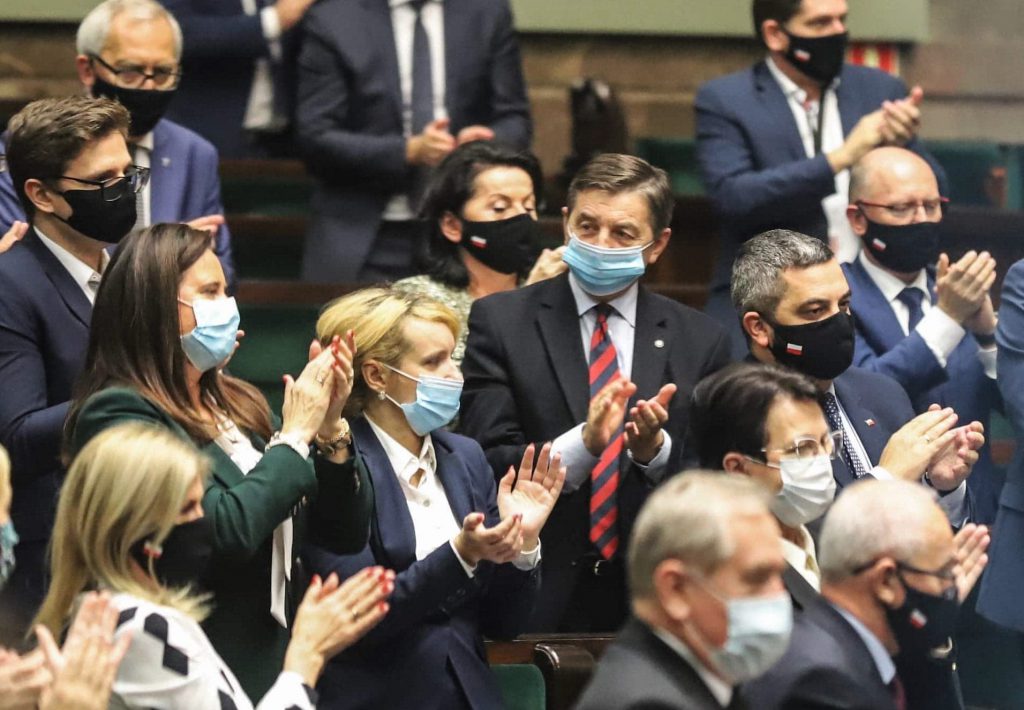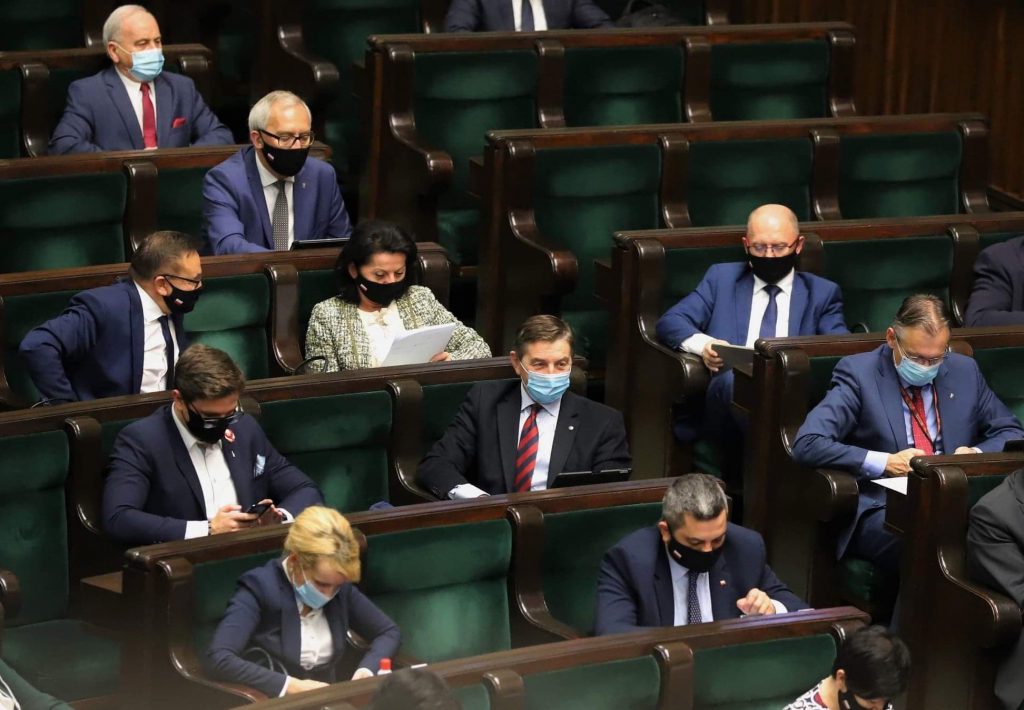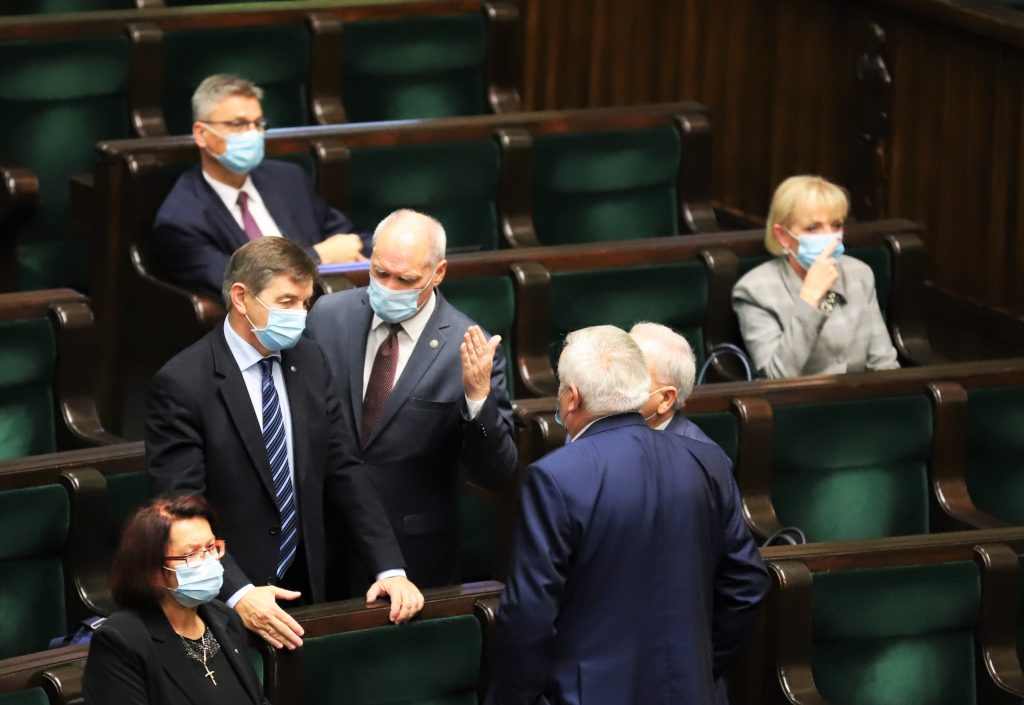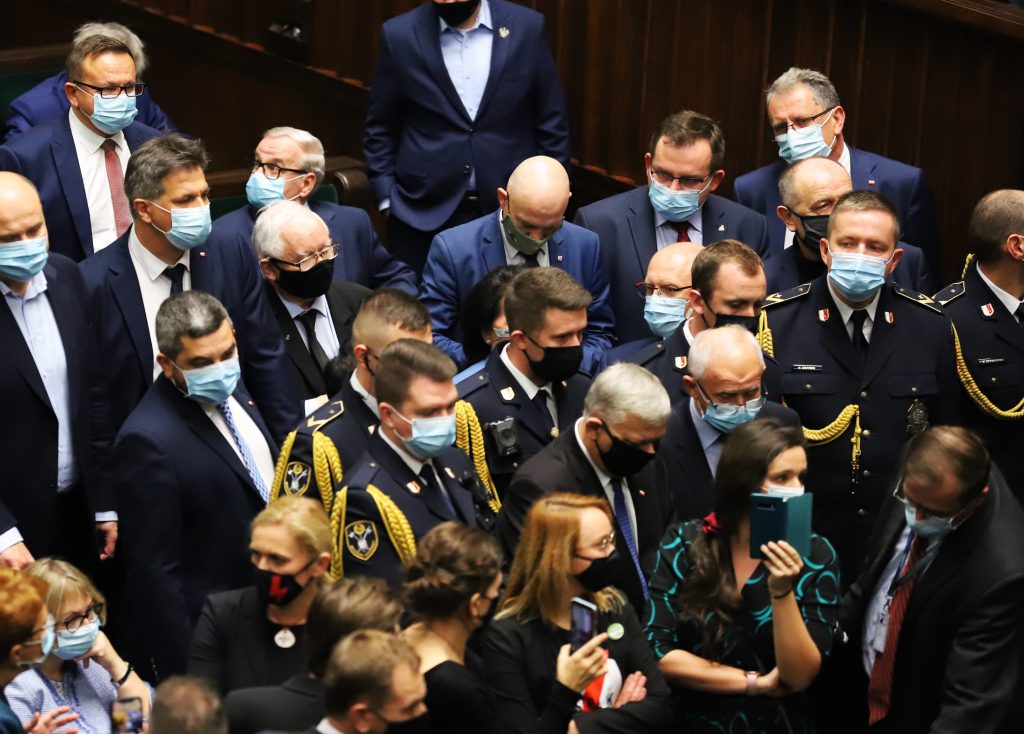The recent increase in the number of coronavirus infections and COVID-19 cases was the main topic of the three-day session of the Sejm that ended on Thursday (October 22). The MPs listened to the government's information on the state of the country's preparations for the second wave of the pandemic and passed a law facilitating the prevention of emergencies related to COVID-19 disease.
Information from the Prime Minister on the state of preparedness for the growing wave of coronavirus infections
On the second day of the 19th session, Prime Minister Mateusz Morawiecki and Health Minister Adam Niedzielski presented the Sejm with information on the state's readiness to face the second wave of coronavirus. The head of government indicated four main lines of defense against infectionThe health care system and quarantine; the creation of additional hospital beds for COVID-19 patients and, as a last resort, temporary hospitals in provincial cities. According to the data presented by the Prime Minister, as of the date of presentation of the information, 16,000 beds for COVID-19 patients were available in the health care system (of which only about 10,000 were used), and an additional 13,000 could be created.
Prime Minister Morawiecki stressed that the government wants to follow a "middle path": not to completely shut down the economy, but also not to underestimate the threat. The Prime Minister also informed the MPs about the procured and purchased by the government 3 million flu vaccines. He added that they would be applied free of charge to seniors over 70 years of age. He also recalled the "anti-crisis shields" proposed by the government and passed by the Sejm, which saved 5 million jobs.
The Sejm voted to take note of the government's information.
Amendment of some acts concerning prevention of crisis situations related to the occurrence of COVID-19
The Sejm amended over a dozen laws to counteract crisis situations caused by COVID-19. One of the key provisions of the amendment assumes increase in medical salaries directed by governors to fight the pandemic. They will receive 200 percent of their base salary. To this end, the House amended the Law on Prevention and Control of Infection and Infectious Diseases in Humans.
Increasing the availability of medical care will also serve to facilitating the employment of physiciansThe pandemic will also be open to medical students and doctors who have completed their medical training within the last 5 years. Students and doctoral students of medical faculties as well as persons who have completed training in a medical profession within the last 5 years will also be able to fight the pandemic.
Fighting COVID-19 medical personnel Will be immune from criminal prosecution for unintentional medical errors. Doctors, nurses, and paramedics who commit a criminal act under these special circumstances will not commit a crime unless it was the result of a gross disregard for prudence.
By amending the Law on Prevention and Control of Infections and Infectious Diseases in Humans, the Parliament authorized the Council of Ministers to issue a regulation requiring the covering of the nose and mouth in certain circumstances, places and objects, and in certain areas. Thus The obligation to wear a mask or other protective equipment has been given a clear statutory basis. Its enforcement will be more effective thanks to the provision providing for punishment by fine or reprimand of persons who do not wear masks, visors or other means of protection. Moreover, the seller will be able to refuse to sell goods or services to such persons without being punished for committing an offence.
The bill on combating the epidemic was considered together with three other parliamentary bills. In the first of them, the proposers proposed a comprehensive regulation of the obligation to use masks, protective masks or helmets in public spaces, the second of the proposals provided for awarding additional remuneration in the amount of 1500 PLN to medics having direct contact with patients infected or suspected of being infected with the coronavirus, and the third project concerned restoring the possibility for local government units to make purchases necessary to counteract COVID-19 with the exclusion of the Public Procurement Law. Some of the proposals contained in these submissions were included in the final enacted law.
Voting on the election of the ROP
As she did not obtain the required majority of votes, Zuzanna Rudzińska-Bluszcz was not elected Ombudsman.
CIS text






